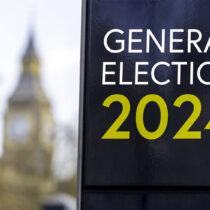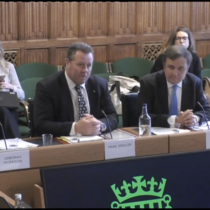EU Citizens After Brexit: the Government Position
The status of EU citizens after Brexit is one of the major causes for concern in the British meat industry, which relies heavily on migrant labour.
The Government has recently published a position paper on EU citizens, the full text of which can be read here (opens as a PDF). To help you understand the issues and implications for the meat industry, we have summarised the key points in this article
So far, the Government has set out a position paper that would ensure existing EU nationals in the UK are not forcibly removed after Brexit. However, the new arrangements could entail individuals applying for work permits and employers acquiring sponsorship status. The PM has said “EU citizens are an integral part of the economic, cultural and social fabric of our country and I have always been clear that I want to protect their rights.”
As it stands, the current stated position is hypothetical. The Government’s position is contingent on a number of factors – including the planned Immigration Bill, the recently announced MAC consultation, and of course the negotiations with the EU itself.
The approach outlined in the paper from the Home Office is as follows:
- EU citizens (except for Irish nationals) resident in Britain will have to apply for a new “settled status” as free movement of people comes to end post-Brexit. This “settled status” will give EU citizens the freedom to reside in the UK in any capacity and undertake any lawful activity, and will be granted to those who have lived in the UK for 5 years continuously.
- Those currently lawfully residing in the UK, but have been doing so for less than five years, will be able to apply for temporary status in order to remain resident. Once they have accumulated five years they will be eligible to apply for settled status.
- There will be a “specified date” where this automatic eligibility for a path to settled status will end, which will be no earlier than the 29th March 2017 (Article 50 date) and no later than the 29th March 2019 (exit date)
- To avoid a “cliff-edge” at the end of free movement of people, the Home Office will make a blanket assumption that all EU citizens in Britain will be given temporary leave under British immigration law. Those resident in the UK after the specified date will be allowed to remain in the UK for at least this temporary grace period and may become eligible to settle permanently, depending on their circumstances. However, this group should have no expectation of guaranteed settled status.
- There will be a provision for EU citizens to apply voluntarily before Brexit, but this will only be mandatory after the cut-off date. Those who fail to apply within the two-year grace period will no longer have permission to remain in the UK. Finally, Irish citizens residing in the UK will not need to apply for settled status to protect their entitlements.
Under this scenario, this would have the following implications for BMPA members:
- Current employees from the EU who were residing in the UK before Article 50 was triggered will be allowed to remain and work in the UK – either under “settled status” or the path to “settled status”.
- There will likely be work for members to do to ensure their workforce has filed in the relevant applications to remain resident – or work with their employment agency to ensure the relevant work is being done. Applications will be able to be filed pre-Brexit to speed this process up and gain greater certainty.
- “Settled status” is not the same as citizenship – for example, “settled status” would generally be lost if a person was absent from the UK for more than two years, unless they have strong ties here.
- There will not be a day one scenario where EU workers employed after the cut-off date cannot come in to work – due to temporary leave the Home Office are planning.
- However, more information will be needed in this area. Members will need to know specifically when the “cut-off” date will be, and how long the transitional temporary leave phase will last, so they can factor this into recruitment and production plans. The Government will have to offer more clarity here.
Since the position paper was released, Amber Rudd has tasked the MAC with their impact assessment and to produce recommendations in September 2018. While this regards our future migration system, there will be overlap here.
It is worth noting that the EU will be pushing the UK to soften their position. After the position paper was released, European Council President Donald Tusk said it was “below our expectations” and suggested that what is being offered is “about reducing the citizens’ rights, the EU citizens in the UK” from their current level.
As mentioned above, this is just the view of Government set out in a position paper. The UK may seek to make concessions with Europe to gain a more favourable deal in other areas of Brexit. Furthermore, the future status of EU migrants will have to be approved by Parliament, where opposition parties may seek to soften the Government’s stance.
A more detailed list of entitlements from the original Government position paper can be found below.
Settled status:
- EU citizens who have lived in the UK for at least five years will be eligible for a new “settled status”, which means they will be free to reside in any capacity and undertake any lawful activity, to access public funds and services and to apply for British citizenship.
- This settled status is maintained unless the settled person leaves the UK for a period of two years or more.
- Settled status is not the same as citizenship – for example, holders of this status do not have a UK passport – but those with settled status and at least six years’ residence may apply for citizenship.
- EU citizens with “settled status” post-Brexit will be able to bring in family members in the same way as UK citizens.
EU migrants in the UK who have not been resident for five years:
- Those who have not reached five years but arrived before a yet to be determined specified cut-off date will be entitled to stay on until they reach the threshold. The Government have not yet given the specified date, which will be subject to negotiation, but it will not be any time before 29 March 2017 (date Article 50 triggered) or any time after 29 March 2019 (date we leave the EU).
- These people will be able to will continue to access the same benefits that they can access now – (broadly, equal access for workers/the self-employed and limited access for those not working). If these individuals go on to acquire settled status, they will then be able to access benefits on the same terms as comparable UK residents.
- To avoid a migration “cliff-edge” at the end of free movement of people and the point at which individuals apply for and obtain UK immigration status, there will be a period of blanket residence permission, to start immediately upon the UK’s exit from the EU.
- This will be a generic “umbrella” of temporary leave applying to all existing lawful EU residents to give them a grace period between the moment that free movement ends and the time they obtain their residence document – allowing them to remain lawfully living and working in the UK. This will likely last two-years.
Future migrants (arriving after the yet to be determined specified date):
- For those arriving after the specified date, the blanket permission grace status will apply to them, while they make an application to the Home Office for permission to stay (‘leave to remain’), in accordance with the new rules applying to EU citizens, which are yet to be determined.
Other key points:
- The European Court of Justice would not have jurisdiction under these proposals. Instead, EU citizens’ rights will be enforceable in the UK legal system, with additional commitments in the Withdrawal Agreement with the EU, which ministers say will have the status of international law.
- Irish nationals will continue to have separate rights which allow them to be treated in the same way as British nationals in most circumstances.






